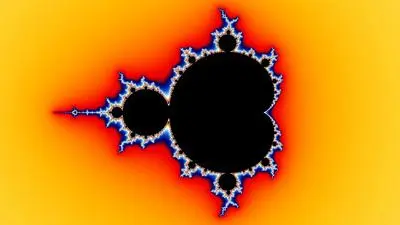Our Place in the Universe
George Ellis
About the Course
Determinism - the idea that the causal nature of the laws of reality means that every event is pre-determined - is the most common criticism of the notion of free will. But what if determinism wasn't true? What if the current state of the universe could not have been predicted at a previous point in time, even with sufficient data and processing power? What if causation were not solely bottom-up, and complex systems had genuine powers of causation? What if we had true powers of autonomy, unshackled by previous events or lower-level structures of causality?
In this course, Templeton Prize-winning cosmologist George F. R. Ellis takes us through quantum physics, cosmology, computing, biology, and psychology to explain how we harnessed the forces of randomness and developed the unique power to consciously cause events in the universe.
By the end of the course, you will have learned:
- What a photon multiplier is.
- How quantum events cause genetic mutations.
- How interlevel feedback loops allow high-level phenomenological understanding
- Why planes fly
- How mental access to Platonic possibility spaces gives inputs to meaningful action.
- How the brain can access the timeless categorical structures of the universe.
- Why the Libet experiment proves nothing.
As part of the course, there are in-video quiz questions to consolidate your learning, and discussion boards to have your say.
IAI Academy courses are designed to be challenging but accessible to the interested student. No specialist knowledge is required.
About the Instructor
-
George Ellis
George Ellis is a distinguished professor at University of Cape Town in South Africa. He co-authored 'The Large Scale Structure of Space-Time' with physicist Stephen Hawking, and is considered one of the world's leading theorists in cosmology.
Course Syllabus
-
Part One: Playing DiceFrom molecular biology to quantum physics, what are the effects of randomness in the universe?
-
Part Two: Emergent ComplexityHow do physical laws underlie complexity? Ellis presents a bold proposal.
-
Part Three: Physics and Human FreedomEllis examines the implications of top-down causation for purpose, value and meaning.
Suggested Further Readings
- Richard Feynman, Six Easy Pieces, Chapter 6.
- Gerald Milburn, Schrodinger's Machines: The Quantum Technology Reshaping Everyday Life, Chapter 1.
- Peter M. Hoffman, Life's Ratchet: How Molecular Machines Extract Order from Chaos.
- John Tyler Bonner, Randomness in Evolution.
- Nancey Murphy, George F.R. Ellis and Timothy O'Conner, Downward causation and the Neurobiology of Free Will.
- Paul M. Churchland, Plato's Camera: How the Physical Brain Captures a Landscape of Abstract Universals.
- Ian Stewart, Seventeen Equations that Changed the World.


